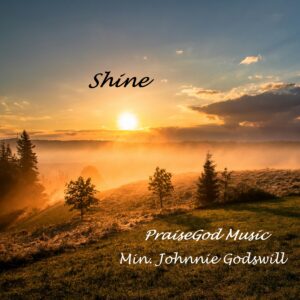Live to livestreaming. Crowded bars to living room concerts to shows in the open air. Release shows to emailed links. Loud, back-of-the-bar conversations to threads full of typos in chatboxes. Stage lights to video production.
Musicians were among the first to feel the immediate societal effects of the Covid-19 pandemic — and among the first to adapt. The precariousness and resourcefulness, the ability to make something out of almost nothing, that has always been the heartbreaking and uplifting double-edged sword of a life in music turned out to be a source of innovation and change in a year that needed it most.
As venues closed in the space of a week and people could no longer get together inside, musicians still found ways to reach audiences, and learned a lot about how to use streaming technologies in the process. Manny James went live from his basement studio in March. A triple bill that had been scheduled for Cafe Nine’s stage in April went virtual instead.

In May, At Home in New Haven brought a full two weeks of concerts, talks, seminars and other programming to screens in and out of the Elm City. New Haven hip hop hero Ceschi started Fake Four Fridays, a streaming weekly concert series that continued through the year. Robert Messore started streaming every Sunday evening from a blanket fort in his apartment and hasn’t stopped.
By June, as case numbers fell and the weather warmed, musicians were playing outdoor shows. The International Festival of Arts and Ideas let patrons sign up to have artists visit them in their front yards. Christina Del Santo, Jenn Stockwell, and Margaret Milano of DrinkDeeply organized a series of concerts of the front yard of a house in Amity. Black Arts Matter, a street festival, drew artists and fans to perform outside, safely and socially distanced, on a newly closed down and much more pedestrian-friendly Orange Street.
The city organized Summer Saturdays concerts at spots across downtown, and outdoor jazz brunches returned. The Cellar on Treadwell took dinner and a show to its outside patio. Best Video built a deck in its parking lot and used it as a stage to host a couple shows a week in the summer and fall, and put on a film series dedicated to Black cinema that it screened on the lawn of the church across the street.

The District on James Street started its own outdoor music series in the fall. Cafe Nine hosted two Beatles-style rooftop concerts that brought fans out, who were able to congregate in the adjacent parking lot.John by Paul Bryant Hudson
Meanwhile, musicians kept making recordings, and figuring out how to make recordings when they couldn’t physically get together. Chris “Big Dog” Davis recorded an album in the early days of the pandemic, from his home studio and remotely, that was out by the early summer. Paul Bryant Hudson released his single, “John.” Rapper Siul Hughes dropped some of his most accomplished work to date.
Waiting on a Sunrise Vol. 1 by Free as Birds Records
Musician Alex Burnet took the pandemic as an opportunity to start a new online record label, Free As Birds. Three monthly compilations released under the new label in May, June, and July featured the work of dozens of artists from New Haven and beyond. The conceit of the compilations — that musicians had to submit songs that they wrote and recorded during the preceding month — meant that the songs were snapshots of where musicians were at during the pandemic and were themselves evidence of how musicians were adapting. Musician Hank Hoffman, under the moniker The Alex Butter Field, released two albums of psychedelic pop.
The year 2020 also found New Haven’s musicians upping their game in making videos. To promote Highs and Lows, an album released at the beginning of the year before the pandemic started, R&B musician Stout shot videos at Kennies Earl Kreative House in Newhallville. The Right Offs made a series of videos to promote the band’s newest album, Bardo, released this year. Stefanie Clark Harris did likewise in support of Black Diamond. S.G. Carlson teamed up with Kicker Pictures to make a short, deliciously campy horror movie out of Carlson’s song “Crisis Shopper.”
The prospect of widespread vaccination brings with it the hope of turning the tide in the Covid-19 pandemic. Musicians and venues are beginning to talk about the possibility of indoor stages reopening sometime in 2021 and of outdoor festivals returning with warmer weather, reopening a source of income that professional musicians have always needed to survive. But no one is counting on it. What musicians can count on are the new skills they have acquired — whether in putting on a good livestream or learning to produce an album themselves — and the new relationships and collaborations they have developed, to make albums, put on shows, and make videos. What they can count on even more deeply is that, whatever 2021 holds, the Elm City will continue to create music that speaks to the moment, to the city’s history, and to people’s desire to find joy and comfort, connection and community, even if it’s just for a few minutes, in the space of a song.
To listen to a conversation between reporters Karen Ponzio and Brian Slattery about New Haven’s music scene in 2020, click on the file below.





